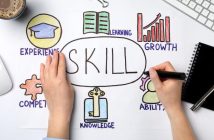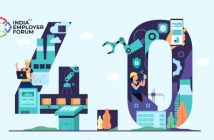Teachers trained during the 20th Century will probably find the need to be updated as they navigate the challenges posed by generative AI, online learning, and increasing need for data literacy in their 21st Century classrooms. Schools across the country must focus on creating an agile workforce that can keep abreast with the present generation. Today’s dynamic environment requires strategic workforce planning so that your goals and human resources can be balanced.
Living in a highly competitive world, the teaching fraternity among all others cannot afford to be left behind. It is best to anticipate the challenges and implement the required changes to keep pace with the curveballs that are bound to come up. Data literacy is a mandatory skill today and it is rather surprising that projections show only 11 percent of the workforce are confident about using data. In a few years, data literacy is going to be a critical work skill and it is thus the responsibility of institutions and organisations to equip their staff with the requisite skills for the future so that they can nurture a future-ready population.
It is rather unfortunate that although there has been some adoption of technology in the classrooms, however, academic curriculums for the most part have remained unchanged and have not matched pace with the speed of technological developments in the workplace. The syllabi being followed are decades old and inept in equipping our young with the work and life skills they need to survive.
Education institutions must revamp their curricula to keep pace with the changes in the world of work and learning so that they can fulfil their role of creating an agile workforce of creative and innovative thinkers who have the capabilities to control and manage technology, for ‘technology is a great servant but a bad master’. We need to inculcate a spirit of lifelong learning among our young people and help them realise that education doesn’t end at school or college. Studies show that the future will belong to people who are willing to engage in a process of continuous learning and reskilling for what it means to be data literate today may have no relevance tomorrow.
The onus of preparing and moulding a generation of world-class citizens lies with our teacher and educators. This generation of students has to learn to be in sync with market demands and be able to anticipate the future. The world of tomorrow will require an agile and versatile workforce that can continuously adapt and evolve in a dynamic work environment.
References:
- Changing market dynamics demand an agile workforce | People Matters | July 2023
- Building Teachers’ Data Literacy Skills | Edutopia | April 2023
- What does data literacy mean in India? | India CSR | March 2023
You might also be interested to read: Thriving in the AI Era: Essential Skills and Strategies for Professionals




